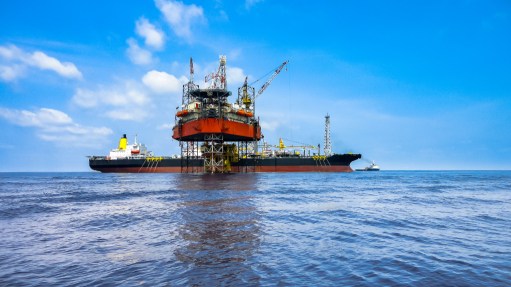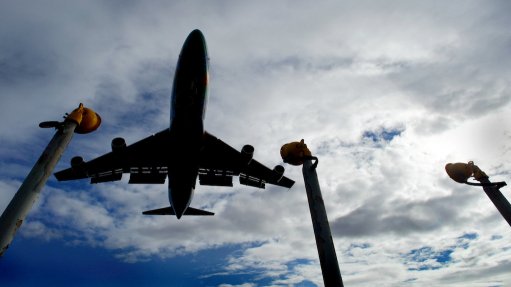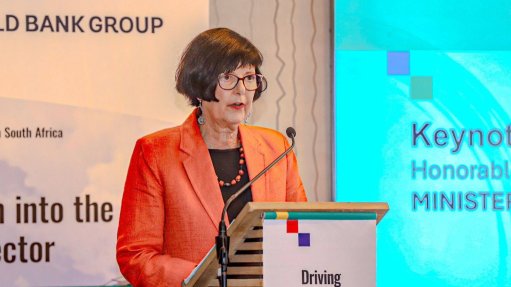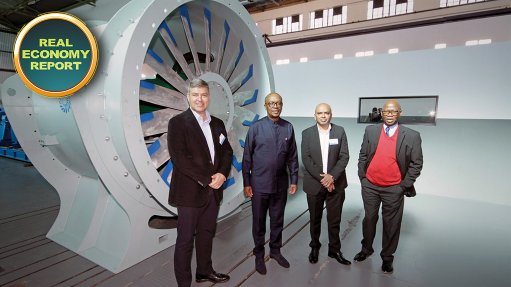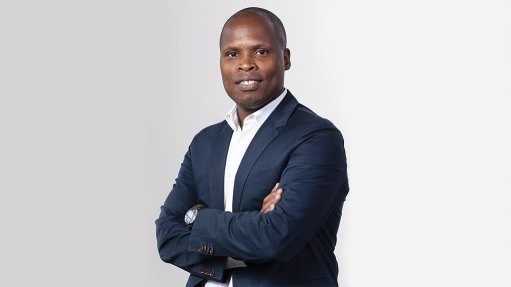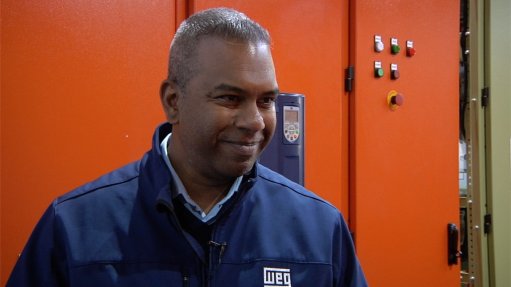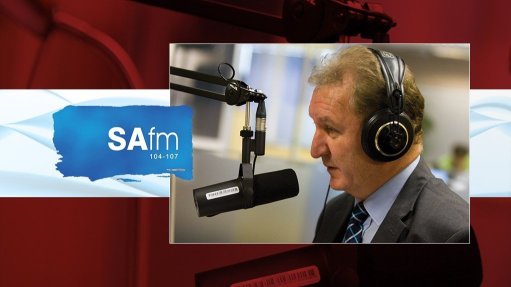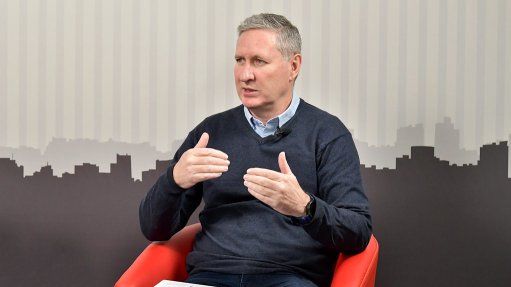Unlocking Africa’s Economic Potential Starts With Transport
This article has been supplied and will be available for a limited time only on this website.
By: Jason Smit - Construction Advisory & Disputes Partner, Pinsent Masons South Africa
At the recent DEVAC Infrastructure Summit, a powerful theme emerged: Africa cannot trade, grow or connect at scale without addressing the broken links in its transport infrastructure. From outdated rail networks to congested ports and deteriorating roadways, the continent’s logistics backbone is under immense strain. But within that strain lies an opportunity for renewal, and with it, the potential to unlock enormous economic value.
Reviving transportation is not just about pouring concrete; it’s about enabling trade, boosting regional integration, improving livelihoods, and laying the groundwork for inclusive growth. The core of the conversation was a call to action for strategic, future-proof investment across three key areas: rail, roads, and ports.
The Sleeping Giant of African Logistics
Rail has long been underutilised across much of sub-Saharan Africa, despite its enormous potential to move goods efficiently and affordably over long distances. Decades of underinvestment have left many rail networks fragmented, outdated, or completely non-functional. Outmoded infrastructure, incompatible gauges between countries, and poor maintenance have rendered key rail corridors unreliable or commercially unviable.
And yet, rail could be the key to unlocking Africa’s intra-continental trade. Projects such as the Lobito Corridor (Angola–Zambia–DRC) and renewed investment in Mozambican rail corridors like Nacala and Beira demonstrate the impact possible when public and private players align.
Modernising rail is not a nice-to-have, it’s a necessity. Beyond freight, rail eases pressure on roads, reduces carbon emissions, and enables the creation of industrial development zones along key corridors. But this transformation requires more than just capital. It demands regulatory harmonisation, cross-border cooperation, and legal frameworks that clarify ownership, concession models, and long-term operational agreements. Recent policy reforms in South Africa, such as the National Rail Policy White Paper and the upcoming implementation of the Economic Regulation of Transport Act are examples of how legislation can be used to create clearer access pathways, enhance investor confidence, and stabilise long-neglected networks.
Repairing the Everyday Arteries
While rail is ideal for bulk and long-distance freight, roads remain the lifeblood of Africa’s internal transport system. From heavy trucks to informal taxis, roads carry Africa’s people and goods across sprawling and often underserved regions. Yet, many national and regional road networks suffer from chronic under-maintenance, poor safety standards, and limited capacity.
We need to understand that this isn’t just a logistics problem, it’s a development issue. Poor roads limit access to education, healthcare, and markets, especially in rural or landlocked areas. Small-scale farmers struggle to get produce to market, informal traders face inflated costs, and vast regions remain economically marginalised.
Strategic upgrades, particularly along key trade routes such as the North-South Corridor and the Abidjan–Lagos Coastal Highway have the potential to unlock productivity, reduce transport costs, and stimulate cross-border commerce. But success lies not just in new construction, it requires sustainable engineering, performance-based maintenance contracts, and robust legal structuring of PPPs that protect the interests of both the state and the private sector across the infrastructure lifecycle.
Unlocking Trade at the Water’s Edge
Africa’s ports, from Durban (currently undergoing operational reforms via Transnet), to Mombasa, Lagos, and Walvis Bay are the continent’s critical gateways to global trade. But most face persistent capacity constraints, outdated customs systems, and limited hinterland integration.
Improving port infrastructure is about reimagining logistics flow through port automation, digitised customs, integrated terminal management, and stronger intermodal connectivity. These upgrades can reduce turnaround times, improve competitiveness, and boost Africa’s attractiveness as a global supply chain partner.
Take the Lekki Deep Sea Port in Nigeria, a landmark public-private partnership that not only enhances capacity but integrates smart logistics and catalyses industrial growth around the port. This model of port-led development, if supported by the right legal and regulatory frameworks, can be replicated across other strategic maritime hubs.
The Elephant in the Room: Construction Mafias
No conversation about African transport infrastructure is complete without addressing one of the most pressing threats to project delivery: the construction mafia. In South Africa and other markets, these criminal syndicates demand a stake, often forcibly, in infrastructure contracts, operating under the guise of local empowerment but using tactics such as intimidation, extortion, and site disruption.
The consequences are profound. Projects stall, contractors flee, costs balloon, and investor confidence erodes. Entire developments, particularly roads, ports, and rail upgrades are delayed or derailed, undermining national growth plans and regional integration efforts.
Confronting this challenge requires coordinated legal, policy, and law enforcement action. Procurement must be transparent, local participation must be legitimate and structured, and contractors need protection under clearly defined frameworks. Legal advisors play a key role in embedding protective clauses, managing risk exposure, and navigating disputes when threats arise. Without decisive intervention, Africa’s most ambitious infrastructure projects remain at the mercy of criminal networks.
The Legal Backbone of Infrastructure Success
When infrastructure projects scale in complexity and ambition, their legal foundations must be equally sophisticated. From land disputes and procurement delays to contractual misalignment, legal risks can quickly derail progress.
At Pinsent Masons, we see a growing awareness that early-stage legal strategy is no longer optional, it’s critical. This includes dispute resolution planning, equitable risk-sharing, governance clarity, and frameworks that are resilient in the face of political and economic turbulence.
When law, engineering, finance, and public policy are aligned from the outset, projects are not only more bankable, but they’re also more likely to be delivered on time, on budget, and for the benefit of all stakeholders.
Execution With Urgency
Africa’s infrastructure gaps are well-known. So are many of the solutions. The real differentiator now is execution, with urgency. That means political will, investor confidence, public-private cooperation, and strong legal structures that provide certainty and accountability.
Transport is more than a sector. It enables the movement of goods, people, ideas, and opportunity. It determines whether a student can reach school, whether a factory reaches export markets, and whether a farmer can scale a business.
If we get this right, we won’t just revive Africa’s transport networks, we’ll unlock its full economic potential, delivering a continent that is more connected, competitive, and resilient than ever before.
Comments
Announcements
What's On
Subscribe to improve your user experience...
Option 1 (equivalent of R125 a month):
Receive a weekly copy of Creamer Media's Engineering News & Mining Weekly magazine
(print copy for those in South Africa and e-magazine for those outside of South Africa)
Receive daily email newsletters
Access to full search results
Access archive of magazine back copies
Access to Projects in Progress
Access to ONE Research Report of your choice in PDF format
Option 2 (equivalent of R375 a month):
All benefits from Option 1
PLUS
Access to Creamer Media's Research Channel Africa for ALL Research Reports, in PDF format, on various industrial and mining sectors
including Electricity; Water; Energy Transition; Hydrogen; Roads, Rail and Ports; Coal; Gold; Platinum; Battery Metals; etc.
Already a subscriber?
Forgotten your password?
Receive weekly copy of Creamer Media's Engineering News & Mining Weekly magazine (print copy for those in South Africa and e-magazine for those outside of South Africa)
➕
Recieve daily email newsletters
➕
Access to full search results
➕
Access archive of magazine back copies
➕
Access to Projects in Progress
➕
Access to ONE Research Report of your choice in PDF format
RESEARCH CHANNEL AFRICA
R4500 (equivalent of R375 a month)
SUBSCRIBEAll benefits from Option 1
➕
Access to Creamer Media's Research Channel Africa for ALL Research Reports on various industrial and mining sectors, in PDF format, including on:
Electricity
➕
Water
➕
Energy Transition
➕
Hydrogen
➕
Roads, Rail and Ports
➕
Coal
➕
Gold
➕
Platinum
➕
Battery Metals
➕
etc.
Receive all benefits from Option 1 or Option 2 delivered to numerous people at your company
➕
Multiple User names and Passwords for simultaneous log-ins
➕
Intranet integration access to all in your organisation






